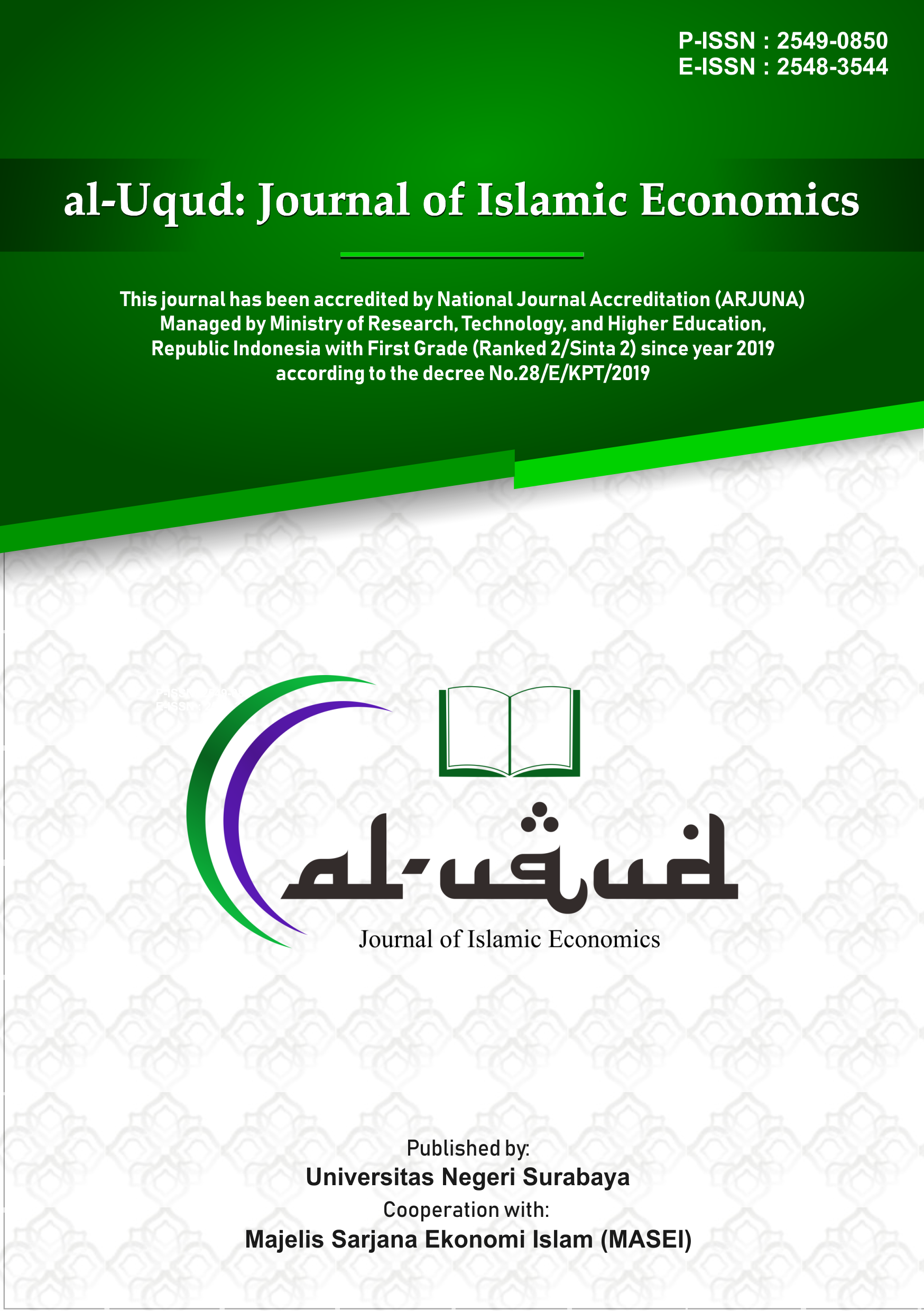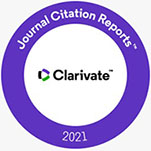The impact of the covid-19 pandemic on the efficiency performance of Islamic Banks in Indonesia: A two-stage data envelopment analysis approach
DOI:
https://doi.org/10.26740/aluqud.v8n1.p67-82Keywords:
Efficiency, Islamic commercial bank, Covid-19 pandemic, DEA two stageAbstract
Additionally, resilience to crises makes Islamic banking one of the leading solutions to overcoming the economic crisis. This research aims to analyse the level of performance of Islamic banking in Indonesia and determine factors, including the impact of the COVID-19 pandemic during the 2011-2022 period, using 11 Islamic commercial banks in Indonesia. The analysis method used is DEA Two Stage, with secondary data from the financial reports of each Islamic commercial bank. The input variables are fixed assets, labour costs, and third-party funds. The output variables are the amount of financing provided and operational income. The research results explain that no Islamic commercial banks in Indonesia achieved optimal efficiency during the research period. Then, the efficiency level of Islamic commercial banks in Indonesia fluctuated yearly during the research period. Furthermore, the COVID-19 pandemic has impacted the efficiency level of Islamic commercial banks in Indonesia. In the potential improvement analysis, know that the most significant source of inefficiency is the output variable: the amount of financing provided. The results of the benchmarking analysis found Islamic commercial banks with the most references, where the year most referred to was 2021-2022.
References
Archer, T.S. (2010). The Efficiency Theory: Improving Society by Eliminating Wasteful Programs, Restructuring the Economy, and Fixing Education. CreateSpace Independent Publishing Platform, New York.
Mai, X. T. T., Nguyen, H. T. N., Ngo, T., Le, T. D. Q., & Nguyen, L. P. (2023). Efficiency of the Islamic Banking Sector: Evidence from Two-Stage DEA Double Frontiers Analysis. International Journal of Financial Studies, 11(1), 65-78. https://doi.org/10.3390/ijfs11010032
Oxford Busines Group. (2020, September 9). After Covid-19, what is next for Islamic banking? Retrieved from https://oxfordbusinessgroup.com: https://oxfordbusinessgroup.com/articles-interviews/after-covid-19-what-is-next-for-islamic-banking
Pratomo, D., & Ramdani, R. F. (2021). Analisis Pertumbuhan Kinerja Keuangan Perbankan Syariah Dan Konvensional di Era Pandemi Covid 19. Derivatif: Jurnal Manajemen, 15(2), 260-275.
Yasin, A., & Fisabilillah, L. W. P. (2021). Analisis Komparasi Kinerja Keuangan Bank Perkreditan Rakyat (BPR) Sebelum dan Pada Pandemi Covid-19. EQUILIBRIUM : Jurnal Ilmiah Ekonomi Dan Pembelajarannya, 9(2), 142. https://doi.org/10.25273/equilibrium.v9i2.10011
Downloads
Published
How to Cite
Issue
Section
License

This work is licensed under a Creative Commons Attribution 4.0 International License.
CC BY 4.0 Abstract views: 386
,
Abstract views: 386
, PDF Downloads: 471
PDF Downloads: 471








